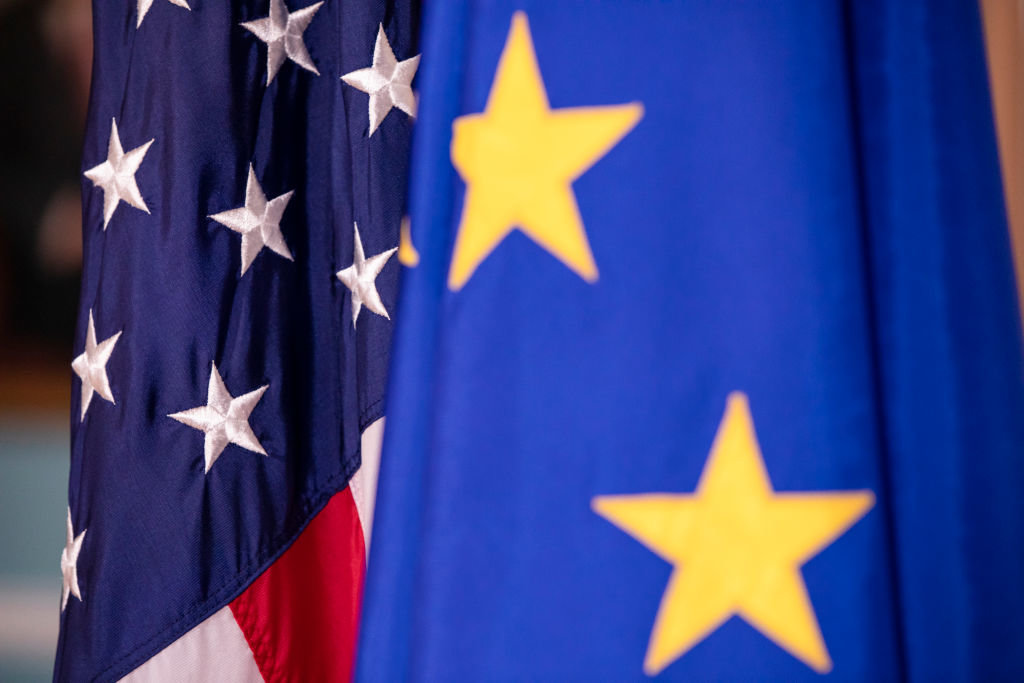European policymakers welcome what a US administration under Joe Biden may bring, eager for a return to the international cooperation and shared values they feel had been lost during Donald Trump’s mandate.
Equally, the EU’s pursuit of “strategic autonomy” remains priority and is viewed as an integral part of being a key partner. Earlier this week, EU High Representative Josep Borrell noted “a strong and capable Europe also means investing in a revitalised transatlantic partnership. With a Biden administration, the two are flip-sides of the same coin.” European Commission President Ursula von der Leyen also sees promise in a “renewed global partnership”, but one that reforms the multilateral system as well as returns to it.
In other words, there are no illusions in Brussels, rather a perceived need to temper expectations. But how might this more cautious EU impact a restored transatlantic relationship?
An undesired change in US power politics
In a bipolar world where the West had a clear leader in the US, global politics was not the EU’s strong suit. As American geopolitics pushed back against external threats, particularly from Russia, the EU spent decades prioritising economic integration over global influence.
Donald Trump’s 2016 election revealed the consequences to this complacency. Alongside his negative rhetoric against NATO and the UN, the void of American leadership became immediately apparent in areas of international diplomacy and challenges – nuclear power in Iran, the rise of China, climate change, digitalisation, migration and a globalised economy seen as fostering economic inequality rather than shared prosperity.
Populism and Euroscepticism developed into larger headaches without the usual American support for European unity. Far-right movements across Europe enjoyed a revival with Trump’s embrace of nationalism, while Brexiteers shared his view of the EU as an unfair trading partner.
EU power politics in play?
Facing a more disruptive international climate, the EU considered a global repositioning that would decouple its survival from American politics. A “geopolitical” European Commission emerged in late 2019 with a focus on those areas from which the US retreated – the Paris Accord on climate change, free and fair trade, the reining in of Big Tech and even former US President Barak Obama’s “pivot to Asia” strategy (though not without a sceptical eye for Chinese intrusion on Europe’s digital connectivity and infrastructure).
This leaves a number of areas in which the EU may leverage the economic weight of its Single Market, some of which may actually magnify tensions with the US, even under a Biden Presidency, as well as an exceedingly divided Congress:
- enforcement of global climate action through a carbon border adjustment mechanism, EU classification of “green” financial assets and environmental / sustainability clauses in trade agreements;
- a strong stance on trade, including preservation of the WTO and protection of key European sectors, from agriculture to automobile manufacturing;
- regulation of digital services and markets via legislative proposals due in early December, and resuming the dialogue on digital taxation;
- closer cooperation with China, while simultaneously trying to be more affirmative, particularly on market access reciprocity and State support to Chinese operators.
Where does this leave the “Biden reset” for EU-US relations?
Differences in an approach to global affairs does not rule out constructive dialogue. Biden is still viewed in Brussels as a staunch defender of the transatlantic partnership, having served on the Senate’s Foreign Relations Committee and, as Vice President, having occasionally made up for Obama’s sometimes clumsy efforts at international diplomacy. It can be expected that most of his advisors, as well as ambassadors, will share his commitment to transatlantic relations.
Likewise, Brussels understands the challenging domestic environment in which Biden will be operating. While there appears consensus in Washington of his ability to advance on foreign policy, European leaders are more apprehensive. They will be watching how he handles partisan politics, racial tensions and a COVID-19 pandemic that has yet to be controlled. The aftermath of the election also demonstrates “Trumpism” is unlikely to fade anytime soon – a concern when it comes to Trump’s lingering popularity in parts of Central and Eastern Europe.
The new normal
What will likely evolve is a partnership in which the EU and US challenge each other’s global positions and roles. This doesn’t have to come at the cost of Europe’s search for strategic autonomy, nor must strategic autonomy be aimed at replacing the US as a global leader.
Rather, these objectives can run in parallel to one another. Biden will appreciate a strong EU-US alliance that amplifies Washington’s global presence but which he can moderate with Americans’ exhaustion of being the world’s policeman. The EU will welcome room for autonomy as it addresses Member State divergences on how far that autonomy should go – some unwilling to antagonise the US with EU policies on trade, Big Tech, or China’s role in the global economy.
This suggests the new transatlantic relationship may be an experiment in balancing internal struggles with the image and influence both the EU and US seek to project to the world. Like siblings, they respect each other and value liberal democracy, but, as in any mixed family, compete and sometimes disagree on the way forward.

